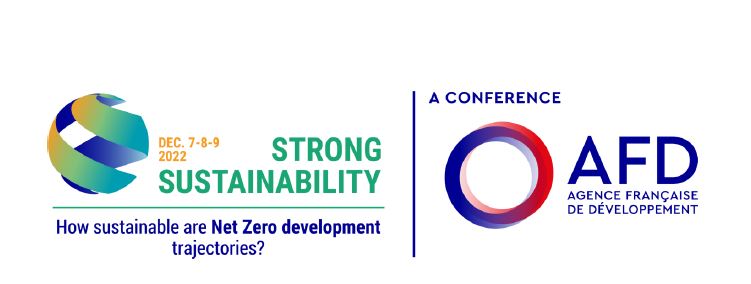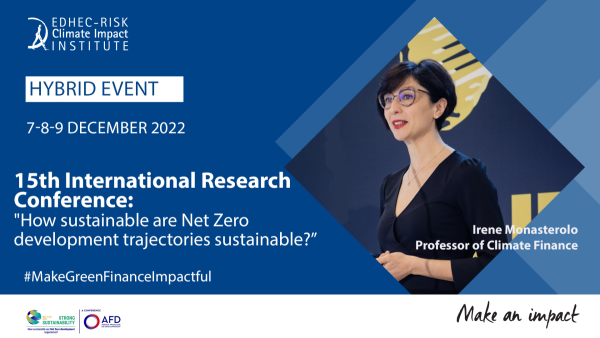15th International Research Conference - Strong Sustainability

The 15th International Research Conference is part of a series of conferences organized by AFD (Agence Française de Développement) on a biannual basis to address key development issues such as the commons, inequalities, and development financing. This year, it focuses on strong sustainability and is entitled "How sustainable are Net Zero development trajectories sustainable?".
Sustainability of development trajectories and the need for greater consistency of SDGs have risen to the forefront of many debates when global crises in several areas and civil society mobilization for a just transition are multiplying.
Anchored in a context where economic issues often take precedence over longer-term environmental problems, these debates have contributed to bring the notion of strong sustainability. The objectives of the international research conference on development are twofold:
- Developing concrete and specific policy recommendations for public and private sectors;
- Generating knowledge related to strong sustainability trajectories so as to better cope with policy challenges in the development field
The conference’s multidisciplinary programme is designed around three guiding principles of strong sustainability proposed by AFD to guide development trajectories’ construction:
- non-substitutability between capitals
- multidimensionality
- the social construct
The event comprises two academic days and one open discussion day combining theoretical insights, testimonies, and recommendations for the public and private sectors to address better political, environmental, economic, and social challenges in the field of development. Each academic paper presented will contain recommendations for action on various themes such as energy transition, climate damage, biodiversity constraints, transition risks, governance, and ecological planning.
On December 8 at 10:00am CET, Irene Monasterolo, Professor of Climate Finance, EDHEC Business School, Programme Director (Impact of Finance on Climate Change Mitigation and Adaptation), EDHEC Risk Climate Impact Institute, will participate in the Climate damage parallel session, and will present her paper on climate physical risk, transition spillovers and fiscal stability. Her paper, co-written with Régis Gourdel, assesses the macroeconomic, public finance and sovereign risk implications of both physical climate risks and transition spillover risks in Barbados using the EIRIN Stock-Flow Consistent behavioral model calibrated to the Barbadian economy.
The session will be moderated by Dr. Brian Hartley, Economist at GEMMES, Macroeconomic Modelling Unit, AFD, France
Find below main findings from the paper "Climate Physical Risk, Transition Spillovers and Fiscal Stability: An Application to Barbados":
- Barbados faces a potentially significant reduction in GDP due to transition spillover risk: up to 38 percent less in 2050, as a deviation from a business-as-usual path of tourism. GDP shocks, in turn, further weaken the debt-to-GDP ratio and sovereign debt sustainability.
- Implementing domestic climate policies may decrease GHG emissions by up to 75 percent, with economic costs smaller than that of unabated climate change. In response, the authors suggest that climate policies should be implemented early while actively planning for potential disruptions of the tourism revenues.
- Mitigating climate risks would benefit from economic diversification and tailored financial instruments that support debt sustainability.
Further information on the conference can be found on the AFD conference website.
About AFD:
The Agence Française de Développement (AFD) funds, supports and accelerates the transitions to a fairer and more sustainable world.
Focusing on climate, biodiversity, peace, education, urban development, health and governance, our teams carry out more than 4,000 projects in France’s overseas departments and territories and another 115 countries. In this way, they contribute to the commitment of France and French people to support the sustainable development goals.



